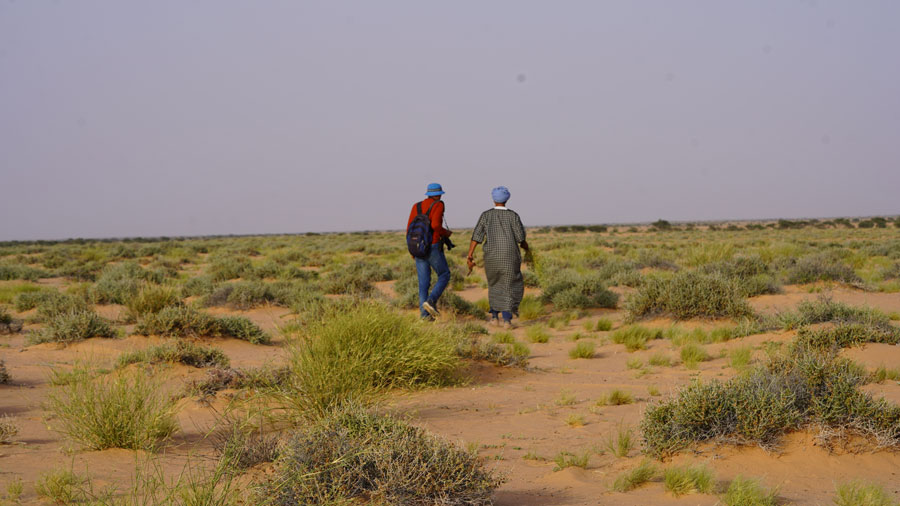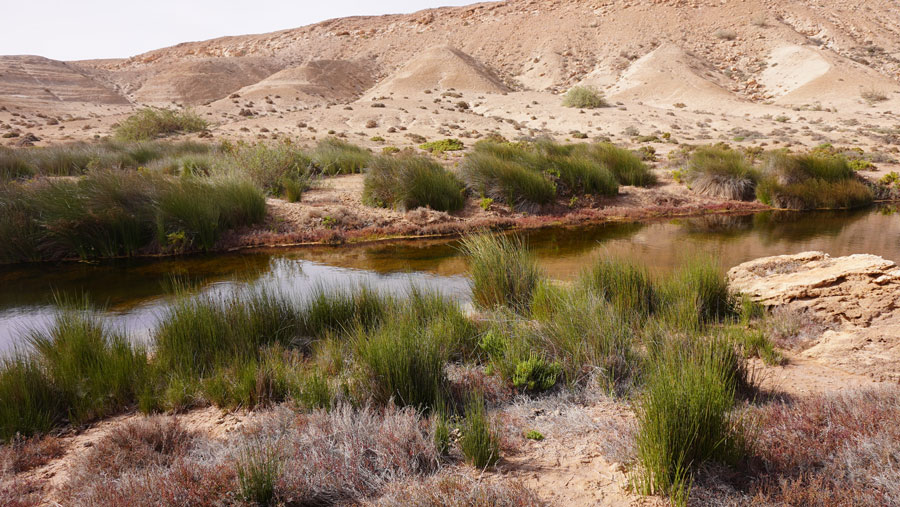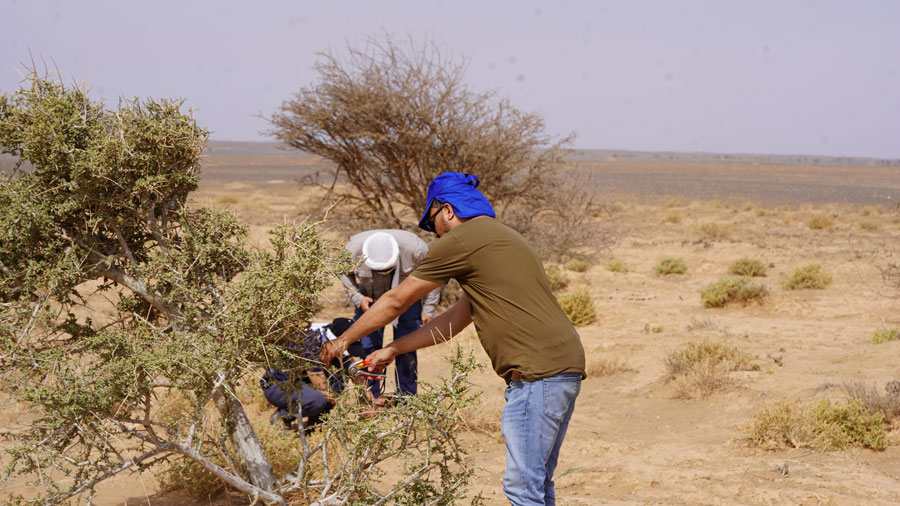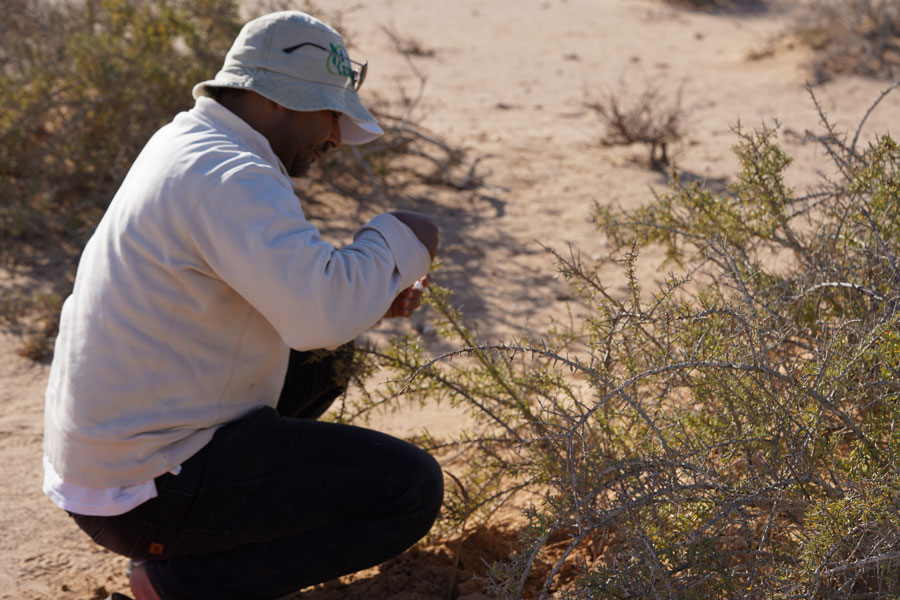AN INVENTORY OF REGIONAL PLANT HERITAGE
FOR BETTER PRESERVATION AND VALORIZATION OF THE BOTANICAL POTENTIAL OF SOUTHERN REGIONS
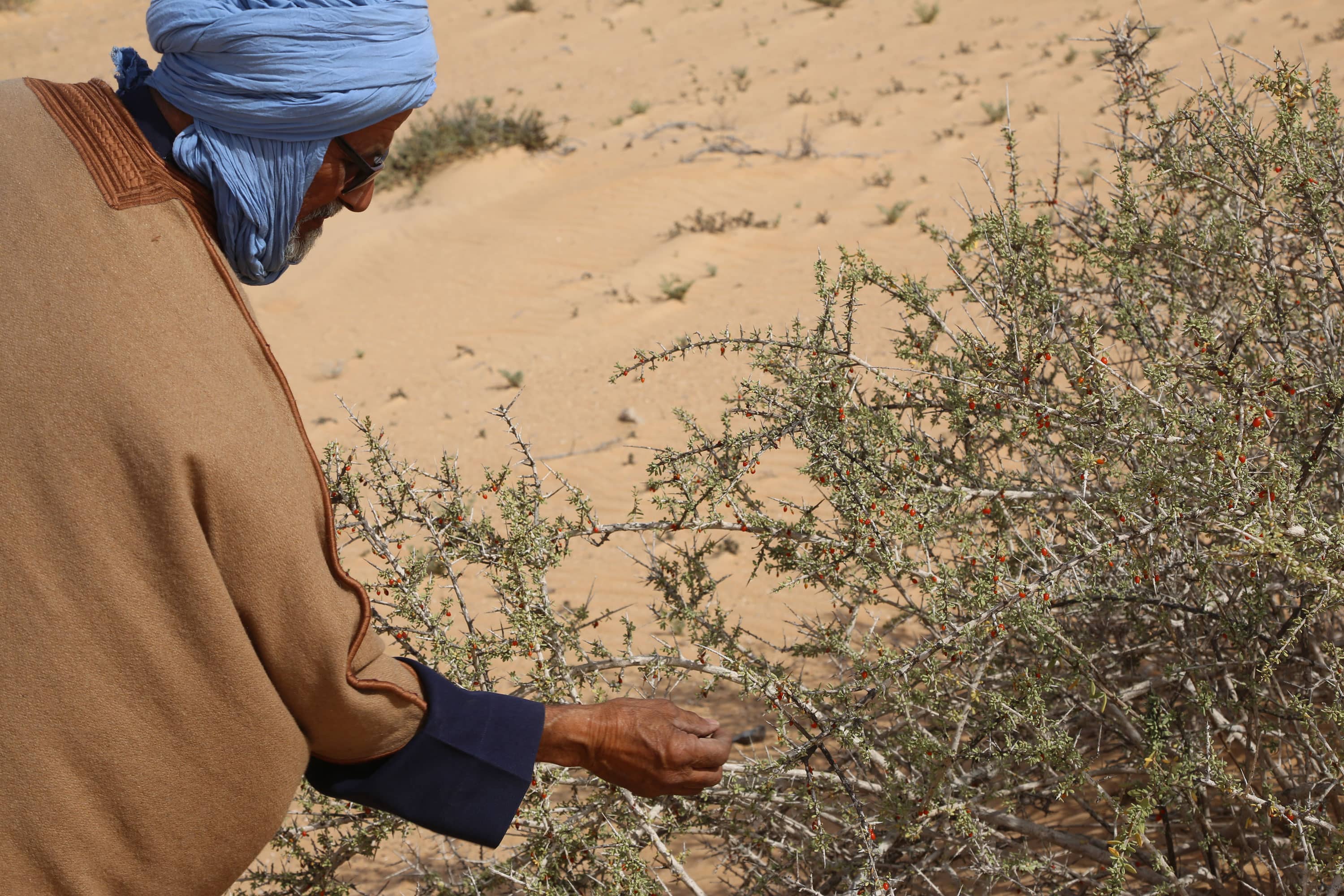
With a view to encouraging actions allowing the preservation of natural wealth and the enhancement of the unique plant heritage of Southern Regions of Morocco, the Phosboucraa Foundation supported a botanical exploration project launched by UM6P - ASARI. This project aims to preserve regional biodiversity, identify native plants and explore opportunities for sustainable development. Through exciting expeditions, scientific discoveries and concrete impacts on the environment and local communities, this project opens new perspectives for the preservation of our precious plant heritage.
Collection and classification of data for better exploration of regional plant heritage
In an integrated approach to sustainable development, the main objective of this project is to preserve and promote the indigenous flora of the Southern Regions, in harmony with the environment and contributing to the well-being of local communities.
This botanical exploration project was carried out by ASARI using a cutting-edge and rigorous scientific approach, in partnership with the Foundation and the ICBA, and was concretized thanks to a qualified technical team, mobilized to carry out expeditions to the heart of the desert in Southern Regions of Morocco. These explorations collected specimens of native plants, while botanical experts contributed to their scientific classification.
The impact of this project goes well beyond simple botanical exploration.
By preserving and promoting the plant heritage of Southern Regions, this collaboration aims to pave the way for a sustainable future where natural wealth is preserved, valued and used responsibly for the well-being of all.
Indeed, the knowledge acquired allows us to better understand native species, their role in the ecosystem and their potential uses. This opens up prospects for sustainable development, particularly in the fields of traditional medicine, agriculture and the rational use of natural resources. With 358 species collected and studied, this project offers concrete potential for the preservation of plant biodiversity and economic development for local communities.
60 days of shipping
230 sites visited
350 species recorded
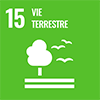
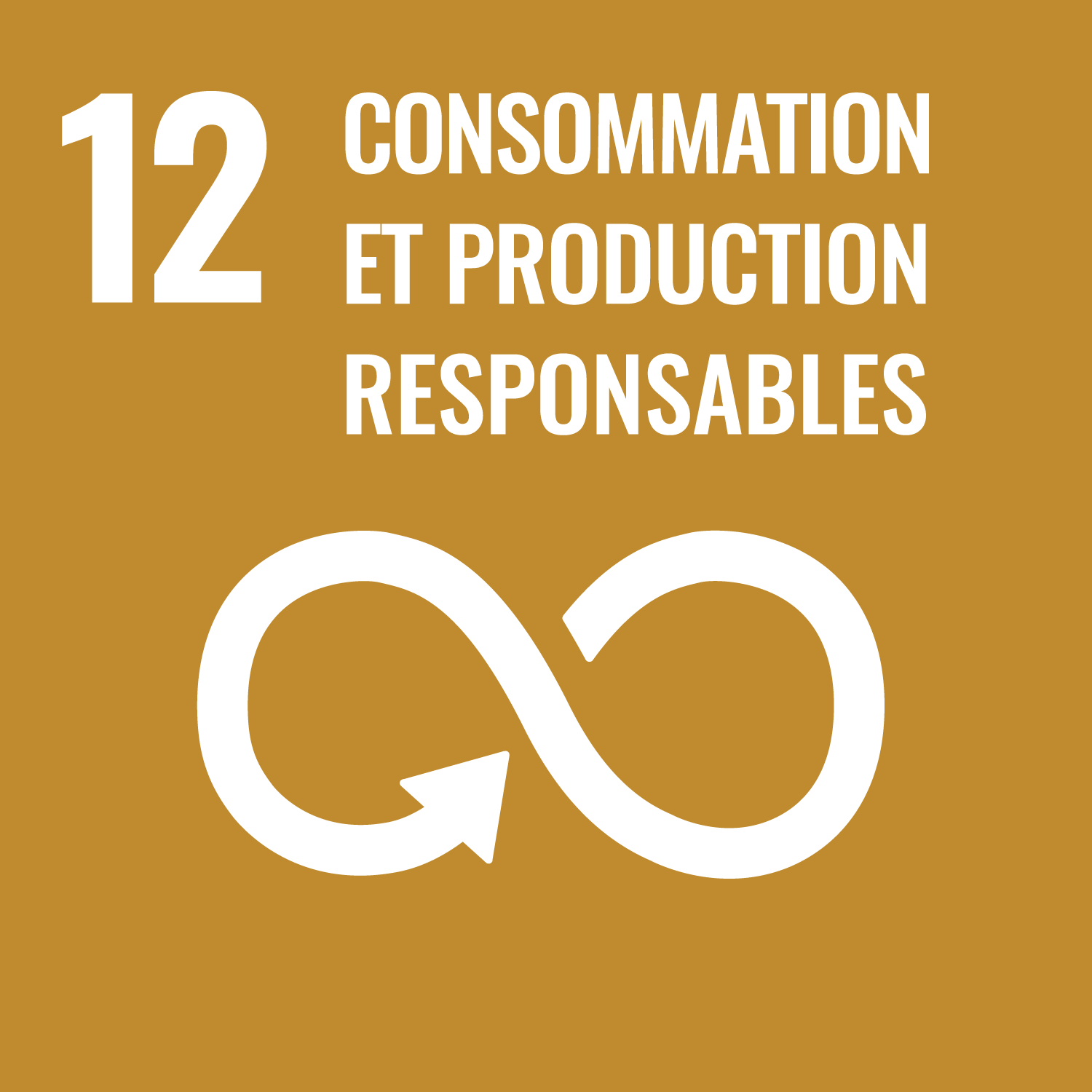
This project mainly responds to SDG 15 (Life on land) and 12 (Responsible consumption and production). It contributes to the conservation of plant biodiversity, the understanding of native species and the promotion of responsible use of natural resources, thus opening up prospects for sustainable development for local communities.

